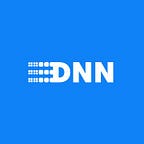Social Media Echo Chambers and Our Own Confirmation Bias
How social media has created echo chambers that augment our own confirmation bias, and how DNN can counter this effect
Fake news? Polarized politics? Secret Facebook groups? These are the hot topics for today’s media. But how do they all fit together? Recent studies show us how social media sites such as Twitter and Facebook have created echo chambers so prevalent that it has become an issue impossible to ignore.
There is a dark side to the Internet, perhaps many dark sides. However, it has allowed us to connect in ways never seen before. No matter the distance, no matter the situation, you can connect to millions in a blink of an eye and within those millions, you are sure to find people who walk and think like you.
To be sure, the creation of online communities has allowed us to speak directly with others who share our beliefs. But it has also allowed us to limit our news consumption to sources that, more often than not, reinforce our existing beliefs. This behavior creates what is called an “echo chamber.” Take Facebook for example. You join Facebook groups based on existing friends and existing likes. If you support a certain political party, you’re probably inclined to join a Facebook community based on that affiliation. Within the group, you’ll be exposed to or will share articles, discussions, and maybe even a meme or two that relates to your shared beliefs. Nothing wrong with that, right? The answer to that question proves to be a little more complicated. A recent study published in PNAS (Proceeding of the National Academy of Sciences) claimed that, “The researchers saw that active Facebook users were more likely to interact with a limited number of news sources. Additionally, the more active a community was, the more self-segregated and polarized it was.” If history tells us anything, it is that the more polarization that occurs within a group, the more dangerous it becomes. As with any religion, cult, sect, or self righteous group, ideologies are all fun and games until people take it too far and someone gets hurt.
A study by Demos found the same to be true of Twitter users. The most active Twitter users who identified with one political party or another were more likely to retweet others who aligned with their political party. They were also more likely to post news articles from news agencies that aligned with their political party. These simple actions have formed thousands of echo chambers within our personal social media microuniverse.
With fake news on the rise, it is seemingly impossible to navigate the murky waters of news without coming across overly sensationalized headlines and false flag reportings. Reeling in the aftermath of one of the most scandalous elections in US history, we know all too well how fake news can sway citizens. Even though social media platforms such as Facebook promised to crack down on fake news stories, we still have a long way to go if we ever want to build a world in which factual journalism thrives. It is one thing to be opinionated, and another to be spreading false information that can have potentially harmful effects on the world around us.
Since we first heard the words blockchain technology uttered, many have erroneously solely attributed them to cryptocurrencies such as Bitcoin and Ethereum. But what blockchain technology offers goes well beyond the world of finances. Its transparency and anti-fraudulent nature are capable of providing us with the tools necessary to establish an ecosystem of fact-checking journalism. DNN, or Decentralized News Network, is a pioneer of this concept. One component of the blockchain is a verifiable and cryptographically secured global ledger that can lead to new types of incentive structures. In the case of DNN, the platform is backed by incentives for individuals to create, review, and consume news.
There is a need for factual reporting and unbiased, impartial, credible news. Gone are the days of ignorantly falling for click-bait material. Writers and producers of content must be held accountable. We need our sources to be validated and meticulously fact checked before being spread far and wide. While it is certainly good to be discussing ways to understand how we can make institutions or media outlets better as authentic and accurate information sources, the solution may very well be decentralizing existing establishments to make way for a more decentralized, self-monitoring news platform.
Please join us on Slack, Telegram, and Bitcointalk, or get in touch directly: contact@dnn.media.
